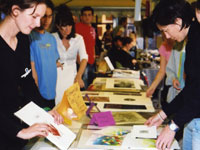| Life Science in the 20th Century - HPSC3150 |
|
||||||||||||||||||||||||||||||||||||||||||||||

Description Explores the rise of the experimental biology disciplines, from the embryology, genetics, bacteriology and physiology of the early 20th century through the 'molecular revolution' of the period around the Second World War and the new sciences it spawned. These include sciences such as cell biology, immunology and above all molecular genetics - the science of the genetic code and the linchpin of current biotechnology.
Learning Outcomes In this course you will come to:
Assessment
|
|||||||||||||||||||||||||||||||||||||||||||||||

| Contacts | Library | myUNSW | WebCT |